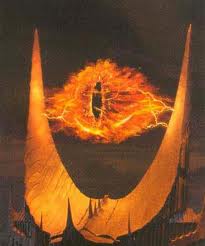 A long time ago, I used to argue with people on blogs. Wait…yeah, I guess I still do. But the story I’m setting up was a long time ago. One of said blogs I argued on was that of my buddy Mike, an old youth pastor of mine who was going the way of the Bell and McLaren (pre-the really, really lame stuff). He’d post some controversial thought to ‘ask a question’ and I’d be the little gadfly college philosophy student who’d jump in and jostle with him. (Also, this was pre-Reformedish days. I would have laughed in your face if you’d have told me in 6 or 7 years I’d be quoting Calvin.)
A long time ago, I used to argue with people on blogs. Wait…yeah, I guess I still do. But the story I’m setting up was a long time ago. One of said blogs I argued on was that of my buddy Mike, an old youth pastor of mine who was going the way of the Bell and McLaren (pre-the really, really lame stuff). He’d post some controversial thought to ‘ask a question’ and I’d be the little gadfly college philosophy student who’d jump in and jostle with him. (Also, this was pre-Reformedish days. I would have laughed in your face if you’d have told me in 6 or 7 years I’d be quoting Calvin.)
In any case, he had raised the issue of Scripture one of those posts. Among other questions he was asking whether ‘all’ of the Bible was the Word of God, or only some of the parts, especially those where Divine Speech is specifically denoted, such as in the Prophets. Are the horrifying narrative sections, or the sections where the thoughts and emotions of the prophets, the psalmists, or the god-hating pagans with speaking parts, are speaking truly God’s Word?
In response to this, I came up with an analogy, on the fly, once again Lord of the Rings-related, to answer how I thought, at a minimum, even those sections could be considered the ‘Word of God.’ Once again, remember this is my 21-year old, still-really-piecing-it-together self:
“One way that I think about the way that the whole Bible is the Word of God, is thinking about it much like I think about The Lord of the Rings being the word of ‘Tolkien.’ It is at least all the Word of God in that he is its Divine Author. (I don’t mean to imply some kind of dictation theory of Scripture. I think its possible to have more than one author of a text at different levels. See Wolterstorff or Vanhoozer on this.) That said, not every word spoken in the text can be taken as his direct ‘word’ revealing his thoughts and desires in normative sense–certainly not those uttered by Sauron or Saruman. But, at the same time, those words are there in the text at Tolkien’s prerogative and are part of the overall “Word” that he speaks through the text and so can be taken as his Word.
In the same way, the words of the pagans in Scriptures are God’s Word in the same way that Sauron’s words are Tolkien’s word. There is a way that Tolkien can show us something about or say something about the nature of evil, through the evil words and actions of Sauron, which Tolkien himself would never do or say. In this way, the words and actions are properly Sauron’s, but they are also Tolkien’s in the context of the larger story he is authoring. In an analogous way God says things through these texts in a way that accounts for and does not reduce the multiple human voices, genres, etc, but also accomplishes his specific purposes in the world through the Text as its over-arching Author. Of course, this is an analogy and it kind of breaks down, but I think captures part of the picture.“
A few years on, I’d probably massage a few phrases here and there, but in the main, I still find the analogy useful. God’s authorship of Scripture is a nuanced and layered one. That I affirm the Bible as God’s Word in its totality, does not mean I’m proposing a flat reading of the text, that fails to take into account narrative or genre dynamics. Far from it. In fact, it means I have to take care to read it even more carefully, not brushing past or carelessly dismissing any of God’s words, in order to discern just what exactly the Spirit is communicating through the inspired Word.
Soli Deo Gloria